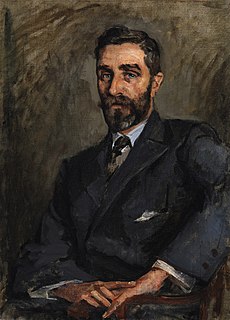A Quote by Emile M. Cioran
To live entirely without a goal! I have glimpsed this state, and have often attained it, without managing to remain there: I am too weak for such happiness.
Related Quotes
Happiness does not come quickly. It is not conferred by any single event, however exciting or comforting or satisfying the event may be. It cannot be purchased, whatever the allure of the next, the newest, the brightest, the best. Happiness, like Carl Sandburg's fog, "comes on little cat feet," often silently, often without our knowing it, too often without our noticing.
We may live without poetry, music and art; We may live without conscience, and live without heart; We may live without friends; we may live without books; But civilized man cannot live without cooks. . . . He may live without books,-what is knowledge but grieving? He may live without hope,-what is hope but deceiving? He may live without love,-what is passion but pining? But where is the man that can live without dining?
And do you know, do you know that mankind can live without the Englishman, it can live without Germany, it can live only too well without the Russian man, it can live without science, without bread, and it only cannot live without beauty, for then there would be nothing at all to do in the world! The whole secret is here, the whole of history is here. Science itself would not stand for a minute without beauty
I have come to see that our problem is that we don't know what happiness is. We confuse it with a life uncluttered by feelings of anxiety, rage, doubt, and sadness. But happiness is something entirely different. It's the ability to receive the pleasant without grasping and the unpleasant without condemning.
Renunciation - non-resistance - non-destructiveness - are the ideals to be attained through less and less worldliness, less and less resistance, less and less destructiveness. Keep the ideal in view and work towards it. None can live in the world without resistance, without destruction, without desire. The world has not come to that state yet when the ideal can be realised in society.
Muscles without strength, friendship without trust, opinion without risk, change without aesthetics, age without values, food without nourishment, power without fairness, facts without rigor, degrees without erudition, militarism without fortitude, progress without civilization, complication without depth, fluency without content; these are the sins to remember.









































